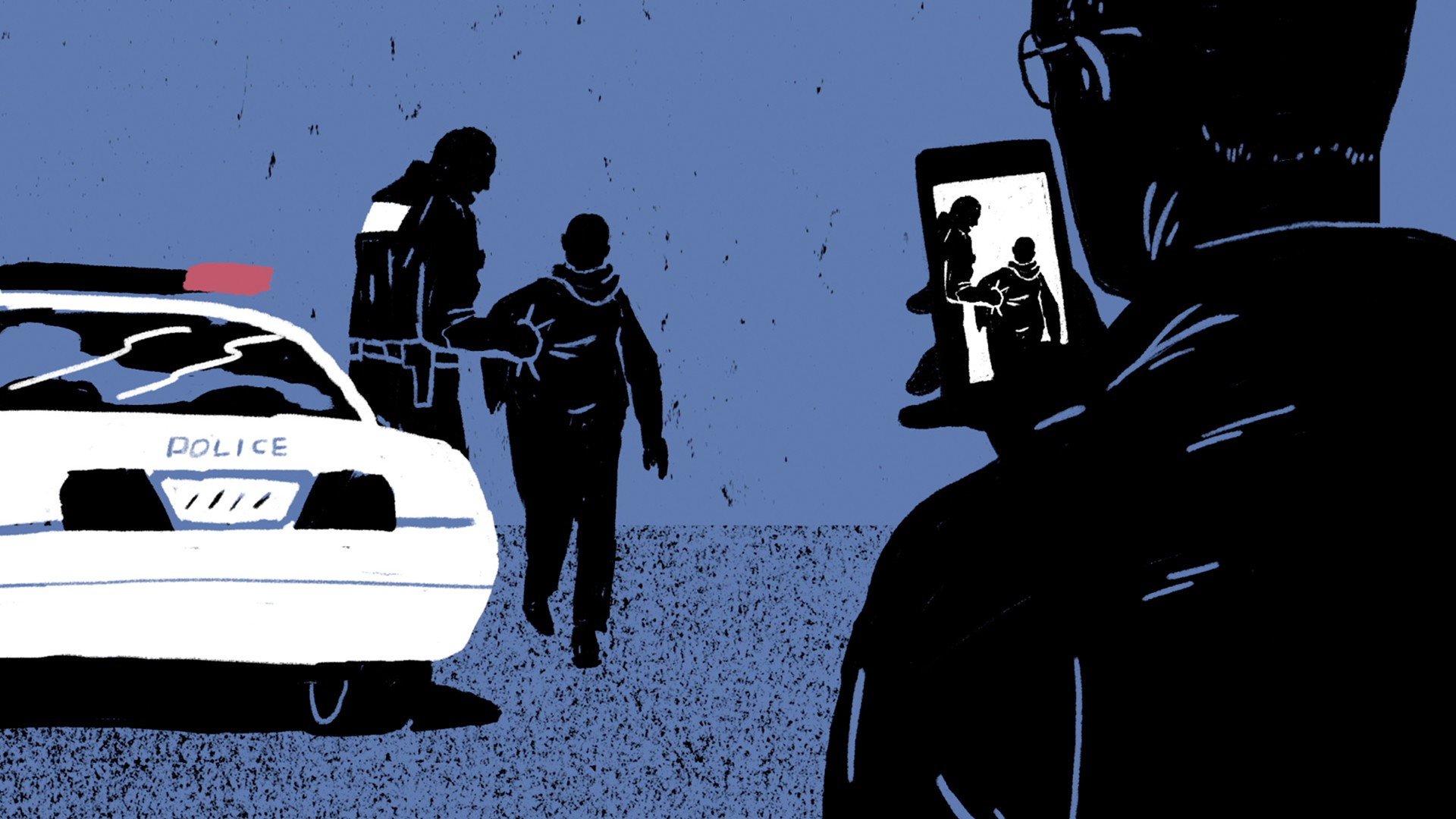Angelenos keep earthquake kits in their cars. Floridians have flood plans. Longtime New Yorker Maricela, 30, has an affidavit of guardianship surrendering her eight-year-old to her sister-in-law.But her plan isn't in case of a natural disaster—it's for a possible raid by Immigration and Customs Enforcement (ICE).

“Like you have a hurricane kit, it’s kind of similar,” explained the DACA recipient, who asked VICE to use only her first name in light of her legal status. “We make sure the doors are locked, the windows are locked. We always have our phones on us, and if you don’t answer a phone call, you know something is wrong. With this administration, anything is possible. Anything could happen, anywhere, anytime.”The specter of deportation is nothing new to New York’s immigrant communities. But advocates and immigrants say any sense of security has evaporated under President Trump. Among his first acts in office was to upend Obama-era removal priorities, vastly expanding the class of people who might be targeted by ICE and where its agents could apprehend them. A new report put out by the Pew Research Center last month showed a 30 percent spike in ICE arrests nationwide, and a nearly 40 percent increase in such arrests in the New York City area. Still, few families have plans as comprehensive as Maricela’s, nor much in the way of reliable information on how to make them.“There’s a huge level of fear that I have not seen over the seven years I’ve been at Brooklyn Defender Services,” said attorney Nyasa Hickey, who supervises the public defense organization’s immigration practice. “Clients are clamoring for information, asking, 'How do I prepare for the worst?’”On Tuesday, the Brooklyn Defender Services unveiled its answer.We Have Rights is a series of animated films produced in conjunction with the ACLU and MediaTank Productions that details hypothetical ICE encounters based roughly on real client stories, suggesting how immigrants should respond to them. The videos, funded in part by Indivisible Brooklyn, are narrated in seven languages—English, Spanish, Urdu, Arabic, Russian, Haitian Creole and Mandarin—and voiced by a polyglot lineup of actors, pop stars, novelists and activists including Kumail Nanjiani, Edwidge Danticat and Linda Sarsour.“What we were seeing at the time was this flurry of misinformation,” said Manu Sharma of Indivisible, which raised about $6,000 to help produce the films after looking into the problem last year. “People didn’t know their rights, and there was a lot of chaos and a lot of stress for these communities without having the information at their fingertips.”The scenarios themselves are chilling: In the first, an elderly man and his wife are confronted at home by ICE agents purporting to be police, which the agency suggested was “consistent with the practices employed by numerous federal law enforcement agencies” in an emailed statement. In the second, agents burst in on a young couple and their toddler, upending their apartment in a warrantless search for identifying documents.“These videos are pretty scary,” said Senior Attorney Scott Hechinger, who spearheaded the project. “They almost have this action or horror feel to them. But they’re also real.”That pathos is intentional.
“The campaign is really twofold,” Hickey explained. “It’s both to educate and distribute information about the rights immigrants have to immigrants themselves, but also to make the general public aware of what ICE is doing.”The attorney said she was “shocked and outraged” by the stories depicted on screen. But to the immigrants who helped vet the scripts over the summer, they were relatable and reassuring.“We watched them together, and we related a lot,” said Jose, 32, a DACA recipient from Mexico City who is married to an undocumented immigrant from Poland. “Once you have no status, or you lose your status, you suddenly become part of this huge community, and you’re always looking for that information.”To wit: when he attended a focus group organized by the film's producers in July, Jose had no idea how to tell an civil immigration warrant from an arrest warrant. Yet, according to BDS clients, ICE agents frequently use one to try to gain access that is limited to the other. The distinction is crucial: Arrest warrants are signed by a judge, whereas immigration warrants are signed by ICE officers. An arrest warrant is much more powerful than a civil immigration warrant, as it often allows police to enter private homes. Even with a civil warrant, ICE agents still need consent to enter and search, which is why, advocates say, they don't often advertise which type of documents they have.ICE usually will not have a warrant, but they may lie and say they do, or show you something else that looks official, the narrators warn, showing sample documents side by side. Each clip reviews specific phrases that immigrants should utter, and particular things they and their loved ones ought to document in order to invoke rights that few are aware they even have.“ICE has very openly said that they use ruses, that they’re targeting people with open criminal cases, that they're targeting people in court,” and those actions are legal, Hickey explained. Still, like the cops they might impersonate, ICE agents can and do fall afoul of the law. “That happens in all sorts of law enforcement realms, but immigrants are especially vulnerable to that exploitation, because there's misinformation that immigrants don’t have rights,” the attorney told me. “There’s a lack of public attention to the rights that are violated.”ICE, for its part, insisted the agency worked hard to protect immigrants’ rights while complying with the law.“ICE is committed to ensuring that all of those who are subject to removal from the United States under our laws receive the full process they are due while in removal proceedings and ICE custody,” an agency spokeswoman told VICE in an emailed statement.But Ely, another DACA recipient who took part in the Brooklyn Defender Services focus group last summer, said she’s felt safer since then, and that she hopes the videos will put other immigrants at ease. Still, she added, she and her family have been saving in case one of them is deported. Jose, meanwhile, renewed his DACA protections, but has also begun taking French, figuring that he can work in Europe if his wife is sent back there. And Maricela, who recently moved with her family from Staten Island to rural Pennsylvania, has begun the process of securing dual citizenship for her son.“I have sole legal custody of my son, so I need to legalize those papers so they’ll be valid in Mexico,” in the event she gets deported, she told me. “If I can’t leave him here with somebody safe, I’m going to take him with me.”Sign up for our newsletter to get the best of VICE delivered to your inbox daily.Follow Sonja Sharp on Twitter.

“Like you have a hurricane kit, it’s kind of similar,” explained the DACA recipient, who asked VICE to use only her first name in light of her legal status. “We make sure the doors are locked, the windows are locked. We always have our phones on us, and if you don’t answer a phone call, you know something is wrong. With this administration, anything is possible. Anything could happen, anywhere, anytime.”
Advertisement
Advertisement
“The campaign is really twofold,” Hickey explained. “It’s both to educate and distribute information about the rights immigrants have to immigrants themselves, but also to make the general public aware of what ICE is doing.”The attorney said she was “shocked and outraged” by the stories depicted on screen. But to the immigrants who helped vet the scripts over the summer, they were relatable and reassuring.“We watched them together, and we related a lot,” said Jose, 32, a DACA recipient from Mexico City who is married to an undocumented immigrant from Poland. “Once you have no status, or you lose your status, you suddenly become part of this huge community, and you’re always looking for that information.”
Advertisement
Advertisement
